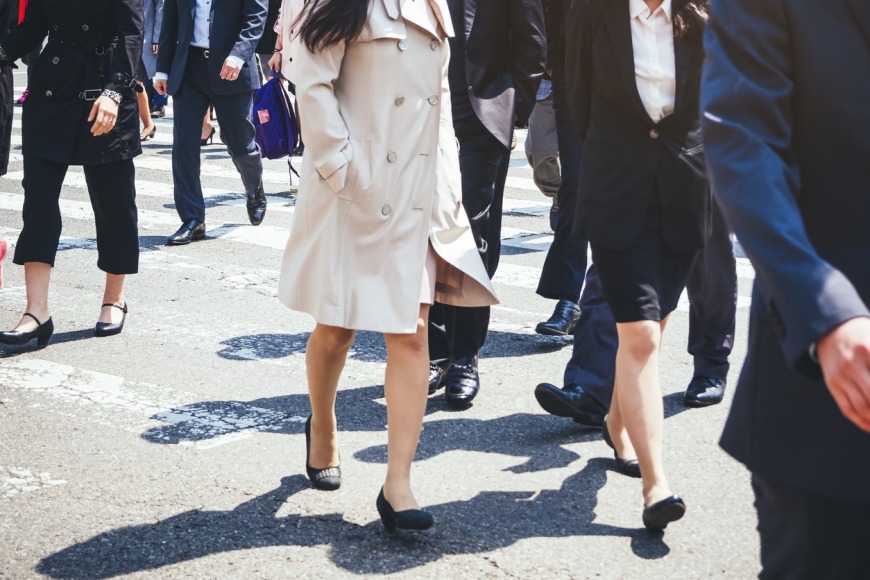Everything you need to know about working in South Korea as an expatriate, from your work permit to job hunting
1 April 2018
| Last updated on 13 November 2018
Whether you just received your offer letter, or are still contemplating whether or not to go and work in South Korea, it is always a good rule to do some research beforehand to help familiarise yourself about the country and what to expect. Especially if you haven’t been there before.
It is always good to know what to expect in the country – all the hot spots, where are the expat “go-to” shops and what neighbourhoods are good to live in, but further to that, you should also read up about working in South Korea. What are the working hours? What does the labour law say about your rights? What is a good salary for your experience and industry?
Luckily, we’ve got your back! Here is a guide to everything you need to know about working in South Korea:
Residents Visa and Work Permit Information
Not all nationalities need a visa to enter and work in South Korea. Here is a list of all the countries that doesn’t require a visa to enter South Korea. If you are not on the list, you will have to apply for a visa as well as a work permit.
The types of visas in South Korea
Visas can either be a Single Entry visa which is valid for 3 months or a Multiple Entry visa which is valid for 3 years.
South Korean visas are divided into different categories listed A – H, M and T each for their own specific reason. Here are the different work visas that you can apply for:
- C-2 Short-Term Business Visitor
- C-4 Short-Term Employment – for temporary work for 90 days
- D-10 Job Seeking Visa
- E-1 University Professor – for academics
- E-2 Foreign Language/ English Conversation Teacher – for teachers who wish to teach their native language
- E-3 Researcher – for research and development activities
- E-4 Technical Instructor – for technical experts invited to South Korea
- E-5 Professional Consultant – for international employees with credentials recognized by the South Korean government
- E-6 Entertainer
- E-7 Specially Designated Profession
- E-8 Employed Trainee
- E-9 Non-professional Employment
- E-10 Vessel Crew – for crews and staff onboard ships
- H-1 Working holiday – short term work, applies to travelers between 18 and 25
- H-2 Working visit
Documents needed for your South Korea visa
It is the responsibility of your new employer to apply for your visa. You will need to submit the following documents to your employer in order for them to apply for your visa:
- Valid Passport
- Visa Issuance Application Form
- Other documents required according to visa status.
Requirements for your South Korea work permit
Your employer should also apply for your work permit. A work permit is typically valid for one year and takes approximately 2 – 4 weeks to process. They will require the following information from you in order to apply for your work permit:
- Passport photos
- Copy of passport details
- Applicant’s CV
- Original copies of academic transcripts / credentials
- Certified criminal / background check
- Original offer or assignment letter
- Proposed job description
Foreign Registration Card
In addition, expats residing in South Korea must apply for a Foreign Registration Card at the immigration offices. This is important to secure accommodation, driving licenses and other transactions that will require identification as a foreign resident.
- Completed application form
- Valid Passport
- Colour photo, 3.5 x 4.5cm
Other documents are depending on the visa type and status (Please visit hikorea.go.kr, under ‘Foreigner Sojourn’ select ‘Foreigner Registration’)
*Visa regulations are subject to change at short notice. Expats should contact their respective embassy or consulate for the latest details.

Changing Employers in South Korea
Foreign employees will need to change their visa if they would like to move to a different employer as the work visa is sponsored by an employer.
You don’t necessarily need to leave the country to change your visa. If you have all the required documentation for the visa and a letter of release signed by your employer. All of this must then be submitted to the Korean immigration office with the applicant’s passport and Foreign Registration Card.
Maternity / Paternity Leave in South Korea
Foreigners giving birth in South Korea are entitled to 90 days maternity leave. 60 of these days are fully paid, and 30 are paid a certain percentage percentage of the mothers’ salary. Up to 45 days leave can be taken before giving birth, and 45 days after giving birth.
Fathers also receive paternity leave although, it is considerably less than that of women. Fathers are entitled to five days’ paternity leave.
Parents with children under the age of three can request a period of full-time or part-time childcare leave of up to one year. A request for leave should be sent to the employer at least 30 days before the start of the period of leave.
General Information About Working in South Korea
Even though you should be able to settle in quite easily, but as with every other country, there are a couple of small things that you should know about:
Business Language
Korean is the main business language spoken in South Korea. English is however also spoken, especially at senior levels and international companies. The option is available to hire a translator if you get stuck. We recommend first checking if the people who you will be working with on a daily basis can speak English if you are planning to move to South Korea.
Business Hours
Business hours in South Korea are typically Monday to Friday from 9:00 am – 6:00 pm. This is however up to the discretion of your employers as they might change the times to what fits them best.
According to legislation, the working week is limited to 40 hours but this is however often times ignored with employees working late when there are deadlines which has to be met.
Dress Code
It is important to pay attention to what you wear in South Korea. You won’t need to go and change your whole wardrobe but do ensure that you always look neat. A suit is usually the best bet for men, although they can also opt for a pair of well pressed chinos or formal pants with a long sleeved button up shirt that is tucked in.
To some extent a suit is also preferred for women although this isn’t a must. The rule is to ensure that you dress modestly and avoid revealing clothes. A good measurement as to how formal, or informal you should dress in your new company, is to look at what your colleagues are wearing and dress accordingly.
Greetings
It is important to note how Koreans greet each other. If this is done wrong, it might offend someone.
- Men greet each other with a slight bow and a handshake. When shaking hands, show respect by supporting the right forearm with the left hand. Wait for a woman to stick her hand out first before trying to greet her. Not all Korean women will shake hands with a Western man.
- Most Western women greet Korean men with a handshake. Again, it might sometimes be best to first suss out the situation before greeting someone.
Gender Equality
Even though a lot of things have changed in the last couple of years, men still dominate the workplace in South Korea. Try and keep this in mind while at the office and how you engage with others, especially Korean men. It will help make your life a bit easier.
Names
In South Korea names work in reverse than in the Western world. The family name is first and then the individual name. In example, where the Western world will have Rachel Green, South Korea will have it as Green Rachel.
Gifts
Gifts are often given as a sign of respect. When you receive a gift, take it with both hands and do not open it right away – wait until the giver has left before opening it.
It is also important to note that you should reciprocate the gift with something of similar value. Here are a couple of tips on gift giving in South Korea:
- Wrap it in bright colours
- Avoid dark or red colours
- Do not give expensive gifts
Avoid gifting knives or scissors, gifts in sets of four and anything with red writing, it is considered as a symbol of death.
Meetings
Trust is very important to Koreans and they will more often than not ensure they can trust someone before starting to engage in business conversations. Be prepared that you will not be discussing business for at least the first meeting.
Remember to always show up on time for social and business encounters and take the time to get to know the person who you are meeting with.
Saving Face
In South Korea people are much more concerned with sparing other people embarrassment rather than themselves. This is especially the case for people with a higher social or professional ranking than you.
You can help other people save face by controlling their emotions by i.e. letting them off easy when requesting something from you that you cannot help them with.


































